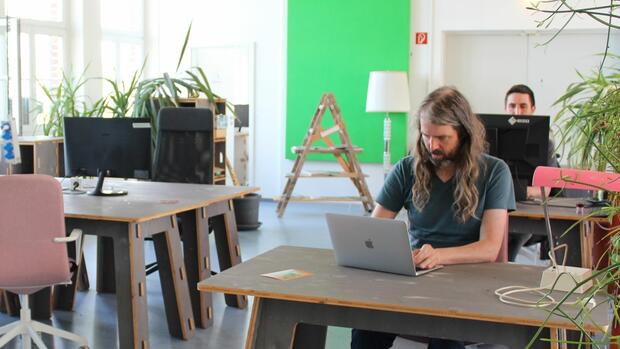![]()
Wittenberge/Letschin “Summer of Pioneers” was the name of the project with which the city made a virtue out of necessity. Young digital workers who otherwise live in metropolises such as Berlin or Hamburg were lured to the Elbe on favorable terms. Affordable housing and fast Internet should make rural areas palatable to them. For this purpose, a modern coworking space with a large window front facing the Elbe was created in the old oil mill, which is now a hotel complex.
Now, three years later, the location in the industrial area is no longer as attractive as it used to be. But the “Summer of Pioneers” has become a permanent project, Christian Soult tells in an interview with the German Press Agency. In 2019, the PR specialist was one of the “pioneers” who moved their mobile office, which usually only consists of a laptop, from Berlin to Wittenberge at that time. He is co-founder and spokesperson of the cooperative “Elblandwerker”, which not only organizes the coworking space, but also contributes to city life with various cultural projects.
“Potluck”-meet every two weeks
This morning it is rather quiet in the offices. In the anteroom, a counter, a large table and a cozy sofa corner invite you to exchange ideas and network. “I like to emphasize the “co” when coworking,” says Soult. Every two weeks there is a meeting, a “potluck”. Then everyone brings what they have in their fridge at the moment, for example, during the meal the coworkers talk about joint projects.
The work takes place in a large hall with huge windows. The most important thing here is the fast Internet, otherwise there are at most monitors or small table lamps on the sometimes somewhat improvised desks. Digital work works largely paperless. If you want to make longer phone calls or just have your peace of mind, there are small rooms for breastfeeding. The coworking space is currently housed in the Prignitz Technology and Commercial Center (TGZ), but for 2025 it is to move to the old “Mitropa” hall in the station building, which is currently undergoing extensive renovation. Then the trains to Berlin or Hamburg are almost right outside the door.
About 25 to 30 coworkers are part of the “hard core” who come here regularly, Soult says. That’s not more than 2019, but since then quite a few new faces have been added. They all work “remotely”, so they bring their job with them to the office. They are designers, IT programmers, work in PR and marketing or as designers. If you want to test rural life for the first time, you can stay in specially reserved apartments of the municipal housing association on a trial basis. The coworking space itself is free of charge, but users should volunteer if possible, for example in cultural projects.
Among the “Pioneers” was also Katarzyna Oldziejewska. The Polish woman lived in Berlin for six years, then she was looking for a personal and professional change. “I was tired of the big city, I wanted to meet new people and move to a completely different place, ” says the young woman. What was planned for a summer became a permanent state. “It was already very different, quiet and rather empty, but positively shocking.” After half a year, the decision was made to stay in Wittenberge, says the independent consultant for digital marketing. At the “pilot service” of the TGZ she received help for her start-up.
Urban escape as a catalyst
After the “grandiose start” by the “Summer of Pioneers”, it is now a matter of consolidating the offer, says Wittenberg’s mayor Oliver Hermann (non-partisan). At the moment, there is still no big increase in the number of coworkers, but when the space has moved into its final quarters in the station, one expects more. As a digital district, Wittenberge benefits from the growing urban exodus, which has worked as a catalyst. “Now we have become attractive to a certain target group.”
And Wittenberge is not alone, as an evaluation of the association “Neuland 21 e.V.” on behalf of the Brandenburg Ministry of Economic Affairs shows. The study, published in February, identifies a total of 104 existing or potential “digital places”. Many of them are located around Potsdam, but rural regions also benefit, such as Eberswalde (Barnim), Herzberg (Elbe-Elster) or the Oderbruch in the district of Märkisch- Oderland.
An alternative for commuters
There – in the municipality of Letschin, the coworking space has its domicile in the Old School and has been a contact point for networkers and digital workers since its launch in 2018. “Newcomers are the main users with us,” reports Managing Director Torsten Kohn. The place is an alternative for commuters to Berlin, but also for people who have found a new home in the cultural landscape on the Oder and are perhaps still expanding their house or apartment.
Up to ten places can be booked via short-term, day or multi-day tickets, two individual offices are available for video conferences. Since this year, there are also accommodation options, for example for seminar participants. “People are now so networked here that they have tackled certain projects within the Oderbruch,” says Kohn happily. “We were the starting point.”








